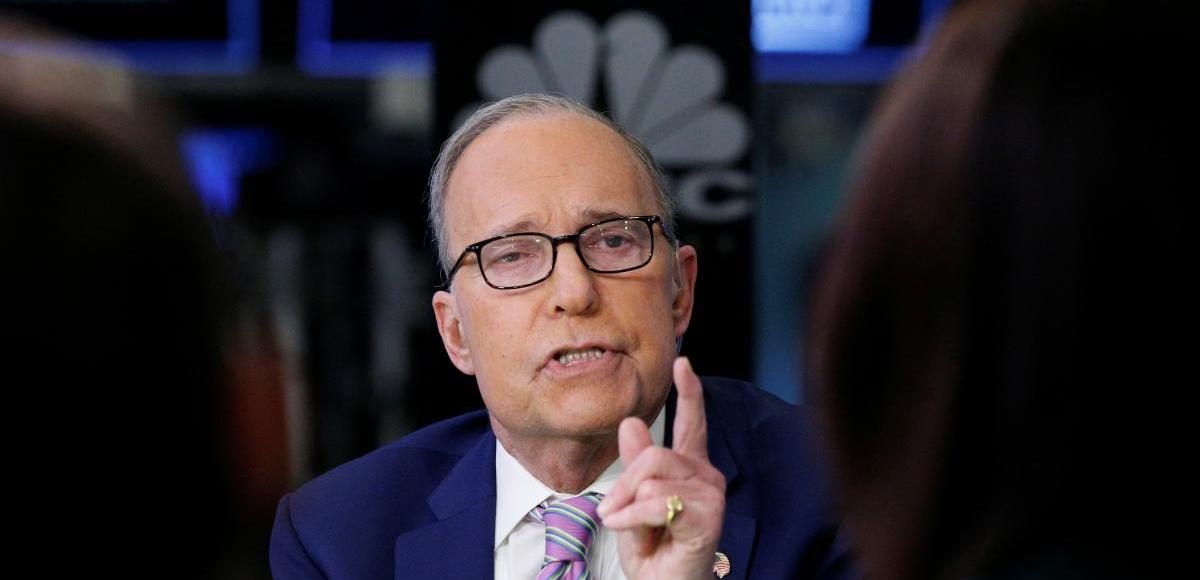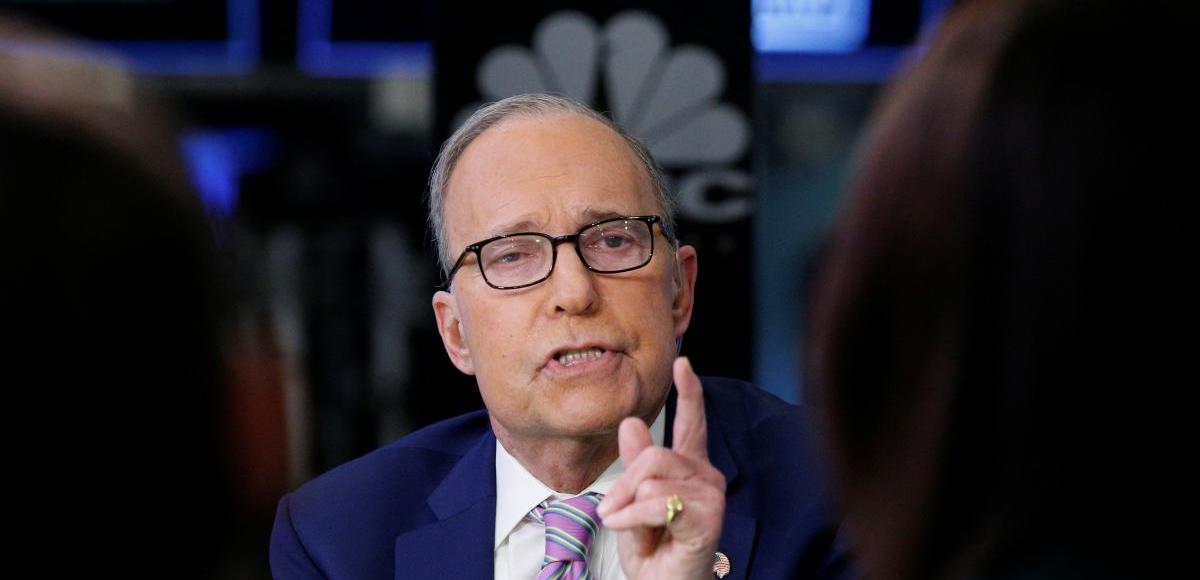

Economic analyst Lawrence “Larry” Kudlow appears on CNBC at the New York Stock Exchange, (NYSE) in New York, U.S., March 7, 2018. (Photo: Reuters)
Ideally, there should be no capital gains tax.
After all, the levy is a self-destructive form of double taxation that reduces the quantity and quality of investment. And that’s not good for wages and jobs.
To add insult to injury (to be more accurate, to add injury to injury), the tax isn’t indexed for inflation. So investors get taxed on the full increase in the value of an asset even though a significant chunk of the increase often is due solely to inflation.
Steven Entin of the Tax Foundation has some new research on this issue.
Many elements of the income tax are adjusted for inflation, such as tax brackets, standard deductions, and income thresholds or dollar amounts of some tax credits.However, the purchase price of assets later sold for capital gains or losses is not adjusted for inflation. As a result, inflation can do a real number on savers by turning real losses into taxable nominal gains. To avoid such outcomes, it would make sense for the government to allow an inflation adjustment for the cost of assets.
Steve points out that the absence of indexing is very brutal during periods of high inflation – which may soon become a relevant issue again.
During the late 1960s and 1970s, when inflation was high and the stock market was flat, it was not uncommon for people who sold assets to report inflated nominal capital gains that were negative in terms of purchasing power. In effect, the savers were taxed on a real loss. …Suppose one had bought $100 of stock in the XYZ Corporation in 1965, and sold it in 1981, for $110. This looks like a $10 gain. But…The stock would have had to rise to $286 just to keep pace with inflation. …the investor lost $176, in 1981 dollars ($286 – $110). Any tax collected on the nominal $10 gain was, in fact, a tax on a real loss.
But even if inflation remains low, this is still an important issue.
Taxing genuine capital gains is bad enough, so it’s not a surprise to learn that taxing inflationary gains is even worse. It exacerbates the anti-capital bias in the current tax code.
Taxation of fictitious gains or other capital income reduces saving and raises the cost of capital, thereby retarding investment, productivity growth, and wage growth. …In an ideal tax system, saving would not be treated worse than consumption. …When we earn income and pay tax, and use the after-tax income for consumption, the federal government generally leaves the consumption alone, except for a few excise taxes… The earnings are taxed, but not the enjoyment of the subsequent purchases. Saving is a purchase too. It lets us “buy” a stream of future income with after-tax money. But if we buy a bond, the stream of interest is taxed. If we buy a share of stock, the dividends are taxed, and any reinvested earnings that increase the value of the company are taxed as capital gains.
Here’s Steve’s conclusion.
Inflation raises the price of many assets acquired by savers. When they sell the assets, much of their capital gains may be due only to inflation. Inflation-related gains are not a real increase in wealth. Indexing the purchase price (tax basis) for inflation would provide savers some relief for this type of tax on fictitious income.
Well said, though I have one minor quibble. A capital gain, whether real or caused by inflation, is not income. It’s a change in nominal net worth.
Though I’m sure Steve would agree with me. He’s presumably using “income” because the tax code treats that change in net worth as income.
There is a chance we’ll see some progress on this issue. Ryan Ellis, writing for Forbes, is optimistic that the newly appointed head of Trump’s National Economic Council will try to fix this problem.
There’s one project that Kudlow needs to get to work on right away: indexing the basis of capital gains to inflation. …Just last August, Kudlow wrote an op-ed…urging President Trump to do this by executive order. …This finally may be the time that this issue is ready to cross the finish line.
Executive order?
Yes, because the law specifies the rates for capital gains taxation, but it’s up to the Treasury Department to specify what counts as a gain. And there’s a very strong argument that it’s not a genuine gain if an asset rises in value solely because of inflation.
Ryan explains the mechanics of how indexing would work..
How would indexing capital gains basis to inflation work? In the tax world, reporting a capital gain is a pretty simple exercise. When you sell an asset, like a stock, you report how much you sold it for. You can subtract what you bought it for (your “basis”) from what you sold it for to arrive at your gain. …If you’ve held the asset longer than a year, you generally pay tax at…20 percent, plus the 3.8 percent Obamacare investment surtax… A problem arises in that your basis purchase may have happened many years ago. The real value of the money you used to buy a stock has been eroded by inflation. For example, $100 in 1990 is only worth $51.41 today, a little more than half the supposed basis in real terms. …Someone whose $100 initial investment has grown to $500 would see a big difference in taxes.
Here’s the table showing that difference.

And here’s what it means.
Uncle Sam still gets to tax the gain–he just doesn’t get to take the phantom gains attributable to inflation. In fact, $22.50 of the current law tax–nearly one quarter of the tax bill–is entirely due to inflation, not any real increase in wealth. …This law change would help owners of real estate, including corporate owners of real estate. It would help small businesses who pay the capital gains tax when acquired by larger firms. It would help everyone in America with a prized collection of old baseball cards or stamps sitting in an album in their den. This is truly a tax cut for everyone.
For more information, here’s a video on the topic from the Center for Freedom and Prosperity.
As was pointed out in the video, Ronald Reagan indexed much of the tax code as part of his 1981 tax cut. Now it’s time to take the next step.
But let’s not forget that indexing should only be an interim step (assuming, of course, that the White House and Treasury are willing to do the right thing and protect investors from inflation).
The real goal should be total repeal of the capital gains tax.







William T. Nahikian / March 18, 2018
Yay!
/
Who cares / March 18, 2018
The reason Trump won in 2016! ???
/